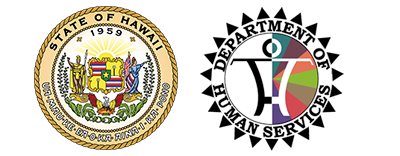DHS in the News: Bill eyes millions in food stamp funds
Posted on Mar 21, 2015 in NEWSThe aim is to get more aid into the state with the help of nonprofits encouraging the needy to sign up
A bill to enlist nonprofit organizations to help draw upon tens of millions of dollars of additional aid for food assistance to Hawaii’s poor is advancing at the state Legislature.
Victor Geminiani, executive director of the Hawaii Appleseed Center on Law and Economic Justice, is urging lawmakers to provide startup money to use nonprofit organizations to sign up moderate- and low-income families for the Supplemental Nutrition Assistance Program, also known as SNAP or food stamps.
National research shows only about two-thirds of the people in Hawaii who were eligible for food stamps were actually receiving the food aid in 2012, and Geminiani said he believes the state could draw down an extra $50 million to $150 million in federal assistance each year by aggressively reaching out to more residents to sign them up.
“If we care about our kids, we ought to support the SNAP program 100 percent, because it’s the way our kids from low- and moderate-income families are able to feed themselves,” Geminiani said.
Department of Human Services statistics show there were an average of 193,565 people enrolled to receive monthly SNAP benefits in fiscal year 2014, and they received benefits totaling more than $520 million that year.
As of June about 40 percent of those SNAP recipients were children.
Department of Human Services Director Rachael Wong said in written testimony last week her department supports the “intent” of House Bill 1347 to expand SNAP outreach, but asked lawmakers instead to support a DHS request for “staffing and modernization” efforts to continue to make other improvements in the SNAP program.
DHS did not respond to a request for an interview on the subject, but said in a written statement that while the department does do SNAP outreach, its staffing and modernization requests this year do not include any expansion of SNAP services or outreach efforts.
The Appleseed Center contends that every $5 in SNAP assistance that families receive here stimulates $9 in spending in the community, which means enrolling people in the program helps to stimulate the local economy. The federal government covers the full cost of SNAP benefits.
Geminiani is proposing the state Department of Human Services spend about $200,000 to kick-start the sign-up effort, using private nonprofit organizations to do outreach work because the state doesn’t have the necessary staff.
In many cases families with children and senior citizens who could be drawing SNAP benefits might not believe they qualify, he said. Other groups that fail to apply for benefits may include immigrants and rural residents who can be difficult to reach.
The challenge is to “try to get a grass-roots approach to try to dig out the people who are not applying although they are eligible for SNAP,” Geminiani said. “What we need to do is get the effort started so we can show the progress and show the return on the investment that I think is guaranteed.”
HB 1347 would allow DHS to contract for services to boost food stamp enrollment, and was approved by the state House earlier this month. It was also unanimously approved by the Senate Human Services and Housing Committee this week.
House Vice Speaker John Mizuno, who co-sponsored the bill, said this is a “golden opportunity” for the measure because Gov. David Ige is pressing state departments to seek out additional federal funding.
“Some people talk about the rail generating revenue and being an economic driver for the state. Let me tell you, every year over half a billion dollars coming into the state — that’s an economic driver,” Mizuno said of the SNAP program. “This is a very important bill.”
